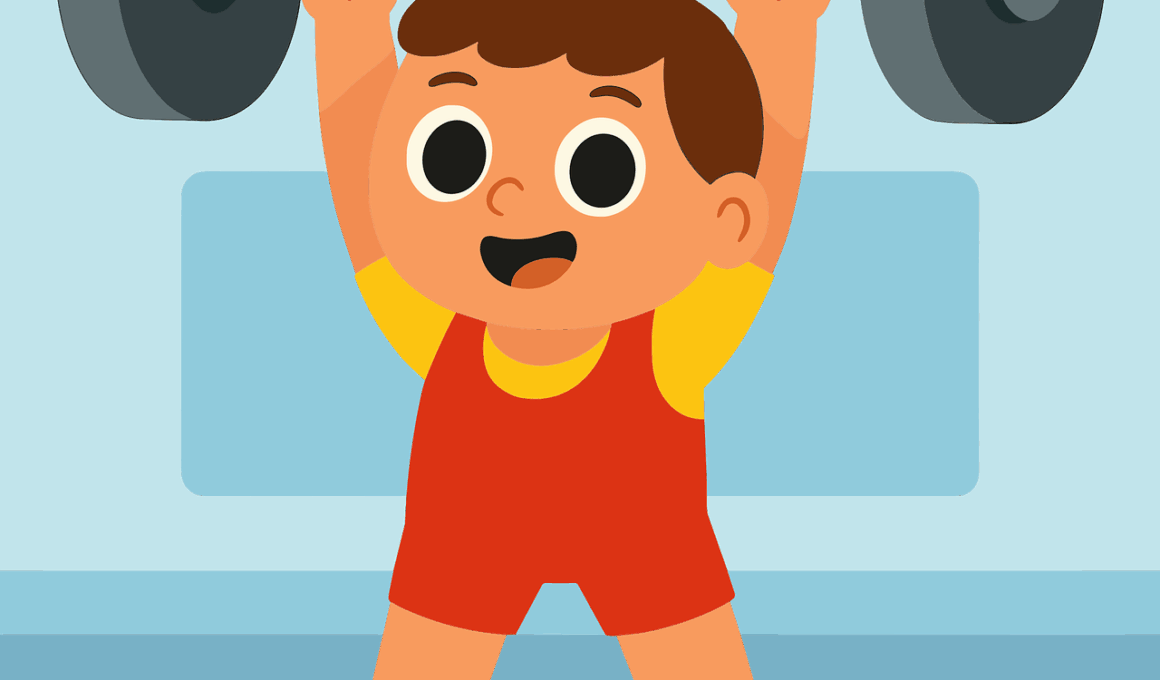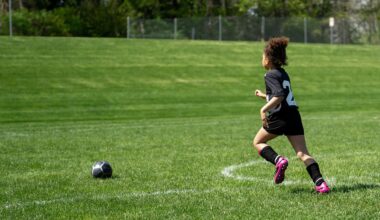Balancing School, Play, and CrossFit Training for Kids
The world of CrossFit Kids continues to gain popularity, emphasizing the necessity of balancing education, physical activity, and recreational pursuits among children. As parents navigate these competing demands, it becomes essential to find a harmonious blend that fosters healthy habits in youth. Teaching kids the importance of balance can inspire a lifelong commitment to fitness. This practice helps promote physical well-being while simultaneously enhancing mental development through school engagement. Consequently, parents can encourage their kids to attend CrossFit classes that foster teamwork, discipline, and resilience. The intricate dance of coordinating schedules effectively, ensuring that schooling never takes a backseat, is where time management becomes vital. These fundamental skills learned during early years will lay the groundwork for future endeavors beyond childhood. Kids can benefit from setting daily priorities that encompass school, CrossFit training, and ample playtime. Moreover, integrating fitness into daily routines facilitates cognitive functions and aids in concentration. Through effective organization and an understanding of the need for balance, kids can adequately prepare for greater challenges awaiting them in the future. Schools, communities, and athletic programs should work together to support this holistic approach for young athletes.
Time management is an essential skill for children when balancing their academic responsibilities with CrossFit training and recreational activities. It is vital for kids to learn how to manage their schedules effectively and prioritize tasks. This process not only helps them plan out workouts, school assignments, and leisure time, but also instills responsibility and promotes organizational skills. Creating a weekly schedule can help kids visualize their commitments, ensuring that they allocate enough time for each area of their lives. Parents and coaches can aid in this process by setting up a calendar that highlights important dates like school projects or CrossFit competitions. Finding the right balance can lead to improved performance both academically and athletically. Encouraging children to use tools like planners or digital apps can further enhance their understanding of time management. These resources can help track assignments and workouts, making their routine easier to navigate. Engaging children in discussions about their scheduling can also lead to valuable insights, allowing them to dictate how they wish to prioritize various aspects of their lives. Ultimately, with practice and persistence, children can master the art of balancing their commitments effectively.
Physical activity through CrossFit offers numerous benefits for kids, not only improving their fitness levels but also contributing to their overall well-being. Engaging in regular exercise is crucial during childhood, as it helps develop strong bones and muscles and enhances cardiovascular health. Moreover, CrossFit training encourages teamwork and social interaction, which can help a child cultivate friendships and improve communication skills. As children learn to work together on various physical challenges, they develop a sense of camaraderie and support that is invaluable. Additionally, CrossFit Kids is designed to be fun and inclusive, focusing on developing skills through engaging exercises tailored to each child’s ability. This fosters children’s self-esteem and confidence, allowing them to challenge themselves within a safe framework. By participating, kids become familiar with a healthy lifestyle that includes both rigorous activity and play. Regular fitness ensures that they remain energized and attentive while in school. Thus, it can enhance their academic performance and engagement with learning. Encouraging kids to see movement as a fun and essential part of life can create habits that persist into adulthood promoting longevity and health.
The Role of Parents in Encouragement
Parents play a crucial role in fostering a positive attitude towards CrossFit and healthy living among their children. Supporting their kids’ participation in CrossFit Kids enables parents to reinforce the significance of physical fitness while keeping them engaged in social activities. Encouragement from parents can motivate children to maintain their involvement in fitness programs. By choosing to involve themselves in workouts alongside their children, parents demonstrate the value of exercise and ensure that it becomes an integral part of their routines. It’s vital for parents to set realistic expectations regarding their child’s performance, as each individual develops at their own pace. Encouraging children to focus on personal growth and improvement instead of competition can alleviate pressure and promote enjoyment. Additionally, families can bond through active pursuits together, ironically strengthening relationships and fostering a supportive home environment. When children see that their parents value fitness and well-being, they are more likely to adopt these behaviors themselves. Parents should also communicate openly about their experiences, providing wisdom about the balance of fun, play, and work. This discussion allows kids to express their feelings and understand their journey better.
Nutrition is integral to complementing the active lifestyles of kids engaged in CrossFit training. A balanced diet plays a significant role in supporting physical activity and enhancing overall performance. Parents must educate their children on the importance of choosing healthy foods that provide the energy necessary for both school and exercise. Providing nutritious snacks and meals can help sustain energy levels throughout the day. Incorporating fruits, vegetables, whole grains, and lean proteins into the diet will support growing bodies. Encouraging kids to stay hydrated is also vital, particularly during training sessions. Often, children may not realize how much hydration impacts their performance during workouts and daily activities. Teaching them to carry water bottles to practice or school is an excellent strategy for cultivating both habits. Moreover, parents can involve kids in meal preparation to foster an understanding of nutrition and encourage healthy choices. By doing this together, children can learn to appreciate the benefits of wholesome eating. Establishing these healthy habits early in life sets them up for success as they transition into adulthood, promoting ongoing health and well-being while enabling them to strive for their best in school and sport.
CrossFit Kids workouts can be adapted to suit various skill levels, ensuring each child can find a pace that is both safe and effective for them. Coaches must be aware of the physical capabilities and individual needs of each child participating in the program. Furthermore, it is essential to foster an environment of inclusivity, as every child should feel welcomed, supported, and empowered to partake in the exercises offered. Modifications and scaled exercises can ensure that participants are not overwhelmed by challenges beyond their abilities. This personalized approach allows kids to build confidence while developing their skills over time. It also encourages them to set personal goals and strive for incremental achievements rather than focusing on competition with peers. As children experience improvement in their fitness levels, their self-esteem will also grow. Coaches and parents alike can provide positive reinforcement, creating a culture of encouragement that inspires children to embrace physical activity wholeheartedly. Ultimately, these experiences can make fitness enjoyable and accessible while helping children develop healthy, active lifestyles. Children need to understand that every step counts toward improvement.
Encouraging Lifelong Fitness
Instilling a passion for fitness during childhood can promote lifelong health benefits as kids grow into adults. The early experiences kids have with CrossFit can shape their perceptions of fitness and well-being later in life. By introducing children to diverse workouts and appreciating the effort required to engage in physical activity, they learn to view it as an essential component of life. This relationship with fitness can serve them well in managing stress and maintaining health as they progress through their academic and professional lives. Parents should encourage their kids to choose the workouts that excite them; this exploration can help foster a sense of ownership over their fitness journey. Emphasizing fun and enjoyment above all else prevents burnout and negativity associated with physical activity. Making fitness a family affair can further enhance this passion, bonding through healthy lifestyle choices and creating lasting memories together. Schools and communities should work together to develop programs supporting fitness and wellness, emphasizing that it’s not just something to endure but something to enjoy. By nurturing a positive attitude toward fitness, we prepare our children to thrive as they navigate through life’s challenges.
In closing, the challenge of balancing school, play, and CrossFit training for kids can yield abundant rewards when approached mindfully. A holistic approach encourages children to value wellness through education, community, and family support. This balance can pave the way for healthier lifestyles, improved academic performance, and personal fulfillment. Encouraging kids to participate in CrossFit provides them with tools to develop resilience, confidence, and camaraderie. As educators, parents, and coaches emphasize the importance of physical activity, they instill life lessons surrounding commitment and teamwork. By aligning multiple aspects of a child’s life towards wellness, we can help them develop a solid foundation for their future. Creating opportunities for kids to express themselves through movement nurtures creativity, enabling them to navigate challenges. Fostering a collaborative atmosphere enriches their experiences, allowing them to build friendships and networks. Moreover, as kids continue their journey in fitness, they learn how to set and achieve goals while overcoming obstacles. This life skill, intertwined with fun and health, will remain invaluable. Ultimately, balancing education, play, and CrossFit training can shape well-rounded individuals, growing into responsible and health-conscious members of society.


